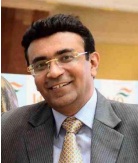FW
Recycled fiber can be transformed into a yarn and pleasant fabric.
Based on a carbamate dissolution process, the technology has been used to produce recycled fiber.
The method involves dissolving worn and discarded cotton and using it as a raw material for new fiber.
The fabric made from the recycled fiber is smooth with a subdued matt finish and drapes nicely. The fiber feels natural.
The method is much friendlier to the environment than the viscose process, in which carbon disulphide is needed for dissolution. In addition, polyester residues are removed from the cotton material using methods familiar from the pulp industry.
The carbon footprint of recycled fiber produced using carbamate technology is about a third smaller than for cotton and in the same category and as the most environmentally friendly viscose. The water footprint of the recycled fiber is around two per cent that of virgin cotton and ten per cent of viscose.
The fiber’s characteristics rival those of commercial yarns when being spun. Yarn was spun at Tampere University of Technology from discarded cotton turned into fiber. Following this stage, the first model products, gloves and flat-knitted fabrics, were made by a knitwear company.
However R&D is still required in order to achieve process reliability.
The US cotton industry will build upon the strong environmental gains already achieved over the past 30 years.
The industry will be the supplier of choice for those who are committed to only buying cotton that is produced with sustainable and responsible environmental, safety and labor practices. It aims to reduce by 13 per cent the amount of land needed to produce a pound of cotton fiber and reducing soil loss by 50 per cent; increase water use efficiency by 18 per cent; reduce greenhouse gas emissions by 39 per cent; increase soil carbon in fields by 30 per cent and reduce energy to produce seed cotton and ginned lint by 15 per cent.
Goals will be developed for measurable continual improvements in environmental stewardship, farm productivity, and resource efficiency such as land, water, air, input, and energy use.
US cotton growers have achieved significant environmental gains over the past three decades. Scientists have worked diligently to develop and refine US cotton’s sustainability initiatives. The United States may be the only country in the world with these kinds of specific, measurable, quantified goals.
The US cotton industry is using science-based metrics and benchmarks to assess environmental impacts and identify opportunities for improvement.
Haji Muhammad Akram Ansari, Minister of State for Commerce and Textile Industry, while addressing the 31st annual general meeting of Pakistan Textile Exporters Association recemt;ly stated that government is fully committed to expedite growth of commerce to maximum possible level by using all available means. Prime Minister's package has helped in attaining competitive edge in international market.
He has underlined the need for serious and well-planned efforts for increasing value-addition especially in textile sector for capturing more share in the regional and international markets. With support of the masses, we will overcome the challenges being faced by the country, the government is committed to imparting all possible facilities to the business community as it is playing a major role in bringing economic stability. No country could achieve economic targets without the due role of exporters therefore government is making all-out efforts to overcome export challenges. He also appreciated the successful efforts of outgoing team in resolving the issues confronting exports.
Pakistani exports are under pressure due to prevailing economic financial, industrial crisis in the country as well as persistently high cost of production, heavy burden of taxes and high energy cost which are badly affecting the industrial and trade activities and productivity output.
Outgoing Chairman Ajmal Farooq, presenting his annual report, stating that despite big challenges, it was wonderful experience representing as chairman of the country's premier association of textile manufacturers and exporters. During the year, utmost efforts were made to look after the trade related issues of members by advocating their voice at appropriate forums.
He termed the Prime Minister's package and payment of long outstanding refunds as positive which will definitely help to accelerated industrial pace in the country. He expressed the hope that new team will continue the efforts to strengthen the linkages with the local and international businesses to promote and protect the interests of textile industry.
Morajee Textiles Ltd. India, purchased a Brückner sanforizing range in 2015, the main components of which are the rubber belt compressive shrinking unit, a felt calander and the cooling cylinders. The company’s Managing Director, R K Rewari, confirms that this Brückner machine has been the right choice for their very light and thus particularly sensitive fabric made of 100 per cent cotton, viscose or crepe for woman’s dresses and men’s shirting fabric. The compressive shrinking line provides the fabric with a more stable structure, a silk-like shining surface and a smoother hand. In addition, it reduces residual shrinkage by up to 3 per cent.
The manufacturer discloses that their sanforizing range is easy to handle – the control of tension and the software ensures treatment of very light fabrics without any marks. The production speed is around 60 and 70m/min and the production team is very satisfied and they recommend the machine especially for difficult and sensitive fabrics.
Morajee Textiles Ltd. India, established in 1871 under the name Morarjee Goculdas Spinning and Weaving Co. Ltd., was one of the first five companies listed on the Indian stock exchange. After unparalleled growth and expansion Morarjee Textiles is now part of the Ashok Piramal Group, a diversified and leading business group in India.
With over 100 years of experience and modern integrated manufacturing facilities for 100 per cent cotton premium yarn, dyed shirting and printed fashion fabric, the company manufactures cutting edge fashion textiles and is today one of the biggest players in the Indian textile industry.
The company showcases all premium international and domestic brands as its customers and supplies its products internationally.
Denim and sportswear label, Liverpool, announced the launch of a new denim capsule collection as part of its upcoming Spring ’18 line.
The “LVPL” capsule combines the fit and performance that have made Liverpool’s jeans a retail hit in stores like Bloomingdale’s, Nordstrom, Von Maur and Dillard’s with more dramatic styling and trim, including Japanese-inspired vintage style floral embroidery and cropped wide leg cuts.
LVPL introduces a new, higher price-point option to the line as the first Liverpool styles to retail for over $100. Retailing from $119 to $149, the jeans in the capsule will feature more premium denim fabrics from Italy and Japan. Design elements will incorporate tonal indigo tonal embellishments going down the side seams of the jeans. Other styles will feature more contemporary graphic embroidery sewn into the fabric of the jeans.
LVPL makes cutting-edge style incredibly easy to wear, incorporating the fit and fabrication know-how to make statement pieces that flatter a range of body types, says Liverpool Design Director Jill Perilman. The company is excited to introduce the new capsule alongside the rest of the Spring 2018 line.
Other highlights in Liverpool’s Spring ’18 collection include the brand’s first denim skirts featuring frayed hems, double release hems and embroidery; new shapes for denim jackets; two new pull-on jeans and jeans made with cotton and tencel blends.
The brand is in growth mode, reportedly seeing triple digit growth in business over the past year. In July, Liverpool introduced its first collection of men’s denim.
Italy first addressed the issue of sustainable fashion a few years ago.
It started in 2012 by publishing the sustainable development manifesto of Italian fashion: ten commandments focusing on the principles that the entire industry needed to adopt.
In 2016, the first guidelines for eco-toxic standards to be complied with in manufacturing were issued.
Leading names in Italian fashion have long made sustainable development a rallying cry.
Italian fashion house Genny for example has unveiled several wholly ecological items. It uses silk that is certified 100 per cent sustainable. All collections are manufactured within a 100 km radius and the supply chain is monitored to make sure that working conditions are respected. Genny has also drawn up a charter of global values which is clearly spelled out on its garments' labels.
The fashion industry isn't very sustainable and companies have to start paying greater attention to the impact they have on the environment.
However sustainability comes at a cost. It is more expensive and the production process is longer and more complicated since the manufacturing and supply chain have to be fully adapted to these standards.
For Genny price rises may be about 30 per cent.
But the company is going ahead anyway, because it strongly believes in the approach.
Hyosung Creora has entered into a partnership with Sofileta.
The new product maximizes the deodorizing advantages provided by Creora Fresh.
Sofileta is a French global textile supplier, specializing in textile and dying.
Hyosung entered this partnership as a strategic move to get closer to customers in France and Europe. Hyosung has been in close co-operation with Sofileta from the birth of Creora and will continue this partnership in future to actively respond to the rapidly changing fashion industry.
Hyosung offers functional spandex products like Creora Fresh, Creora Highclo, Creora Eco-soft and Creora Color Plus. Creora Fresh chemically neutralizes substances generating sweat and foot odor and is applied to under wear and active wear.
Creora Highclo, mainly applied to swim wear, was developed to reduce damage to clothing induced by chloride.
Creora Color Plus and Creora Eco-soft are functional products enriching the clear color of the textile during dyeing and providing a softer touch of textiles respectively.
Hyosung is the largest producer of spandex in the world with the Creora brand. Hyosung’s textile business leads the world textile industry with its spandex, polyester and nylon yarns. The company produces various differentiated polyester and nylon yarns from regular yarns to high functional specialty yarns.
The garment making industry is labor intensive and associated with low productivity.
Things are set to change. Recently there has been much publicity about sewbots, considered as a major breakthrough in garment automation. Manufacturers fast enough to ride the digital wave will find new opportunities and gain an edge over their competitors.
Automation, especially in an integrated textile and garment manufacturing chain, will help address the fashion and clothing industry’s current concerns of short production cycles and sustainable business practices.
With greater automation on the cards, industry players are seeing the resurgence of garment manufacturing activities in Europe and other developed economies.
By incorporating technological and creative innovation to differentiate their products, manufacturers can expand their markets. As such, it is critical for them to continually evaluate and invest in new technologies.
Companies are starting to play around with the concept of connected garments. The smart clothes they are working on may be the future of wearable tech. Much more than strapping gadgets to our wrists, faces, ears and feet, smart clothing can constantly track our heart rate, monitor our emotions and even pay for our coffee. All without grabbing a phone or even tapping a screen.
ITMA, June 20 to 26, 2019, Spain, will spotlight smart garment technologies.
In India Amazon is using a strategy similar to the US, where a vast network of warehouses allowed it to offer quick, cheap delivery.
Fulfilment centers are extremely critical for the success of its Indian operations. The US-based retailer has doubled its storage capacity in the last one year to meet its rapid growth in India.
Within miles of the new Hyderabad storage hub is one of Amazon’s largest global customer service centers as well as one of its biggest software development facilities in the world. All of these are hidden from public view.
Amazon’s 41 warehouses in India are vital in a country where the largest online retailers are marketplaces without any inventory of their own in accordance with foreign investment rules for e-commerce. Their locations are crucial because the nation’s logistics networks can be unreliable. They have to be close to sellers and with easy access to a density of buyers.
In India, Amazon has adopted a hybrid model, a blend of people and conveyor. Fixed costs are high in the country while labor costs are low, the inverse of the West. So a vast number of workers toil in comparatively smaller warehouses.
In India, the company has grown revenue at about 124 per cent year-on-year, totting up 85 per cent growth in the first quarter and 88 per cent in the second quarter this year.

Sanjay K Jain is the ne chairman of Confederation of Indian Textile Industry (CITI). He is the managing director of New Delhi-based TT, a vertically integrated textile company. A cost accountant and company secretary, he is on the committees of Texprocil, SIMA, and various other bodies. He is young, dynamic and very articulate in dealing with the core issues of the textile industry. His priority would be to strongly pursue important issues so that the Indian textile industry becomes a significant global player.

T Rajkumar is the new deputy chairman. He is actively involved in various industrial bodies and educational institutions. He is chairman, Sri Mahasakthi Mills, Kerala, Sri Arumuga Enterprise and Foundation One Infrastructures, Tamil Nadu. He is the immediate past chairman of SIMA and chairman and managing trustee of Global Pathway School, Coimbatore, and secretary, Nachimuthu Gounder Rukmani Ammal Charitable Trust, Pollachi, Tamil Nadu.

DL Sharma is the vice chairman of CITI. He is director of the Vardhman Group and managing director of Vardhman Yarns and Threads. He has also served as chairman of Punjab State Council of Confederation of Indian Industry and president of Ludhiana Management Association.
The Confederation of Indian Textile Industry is the apex body representing the entire textile industry in the country.











